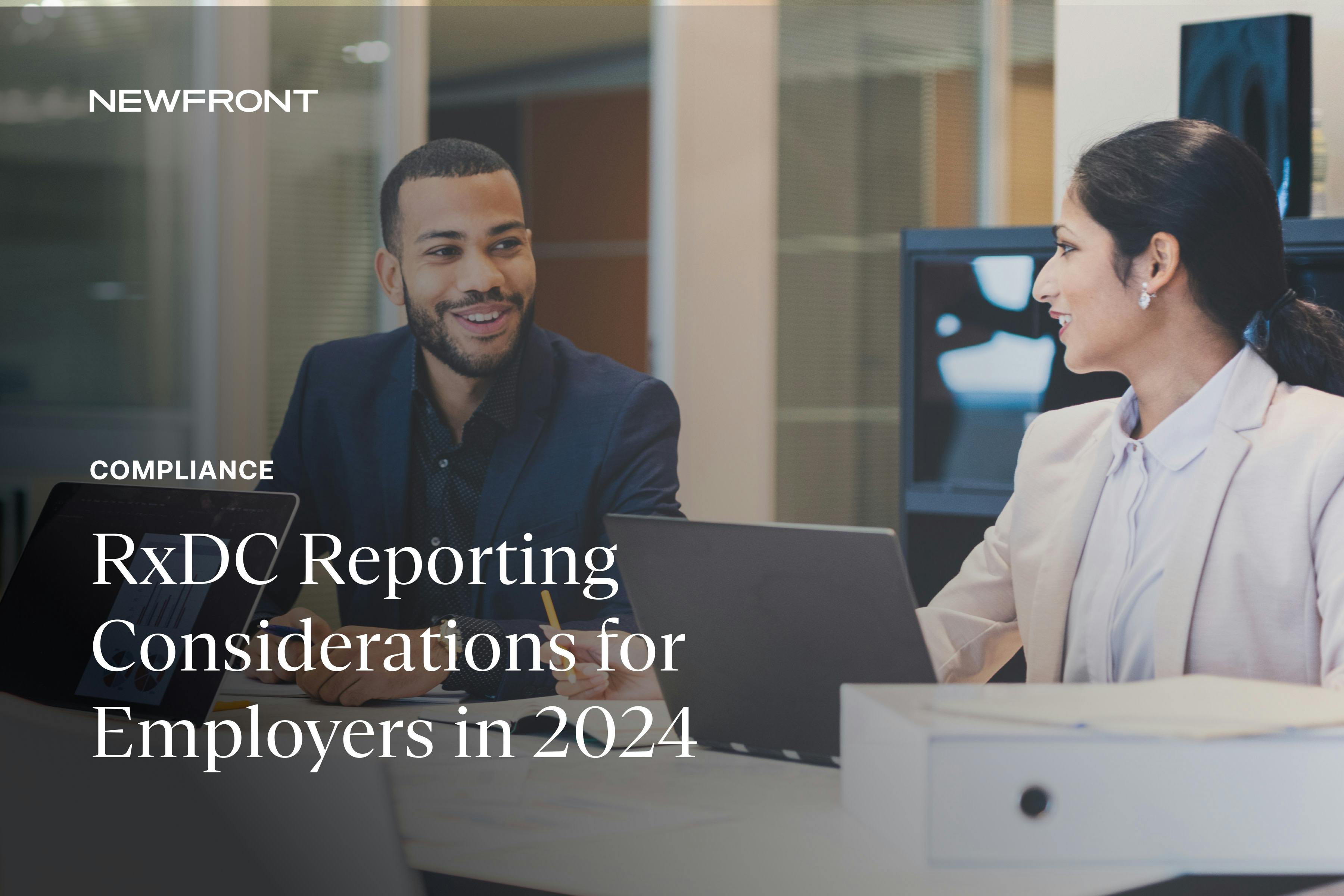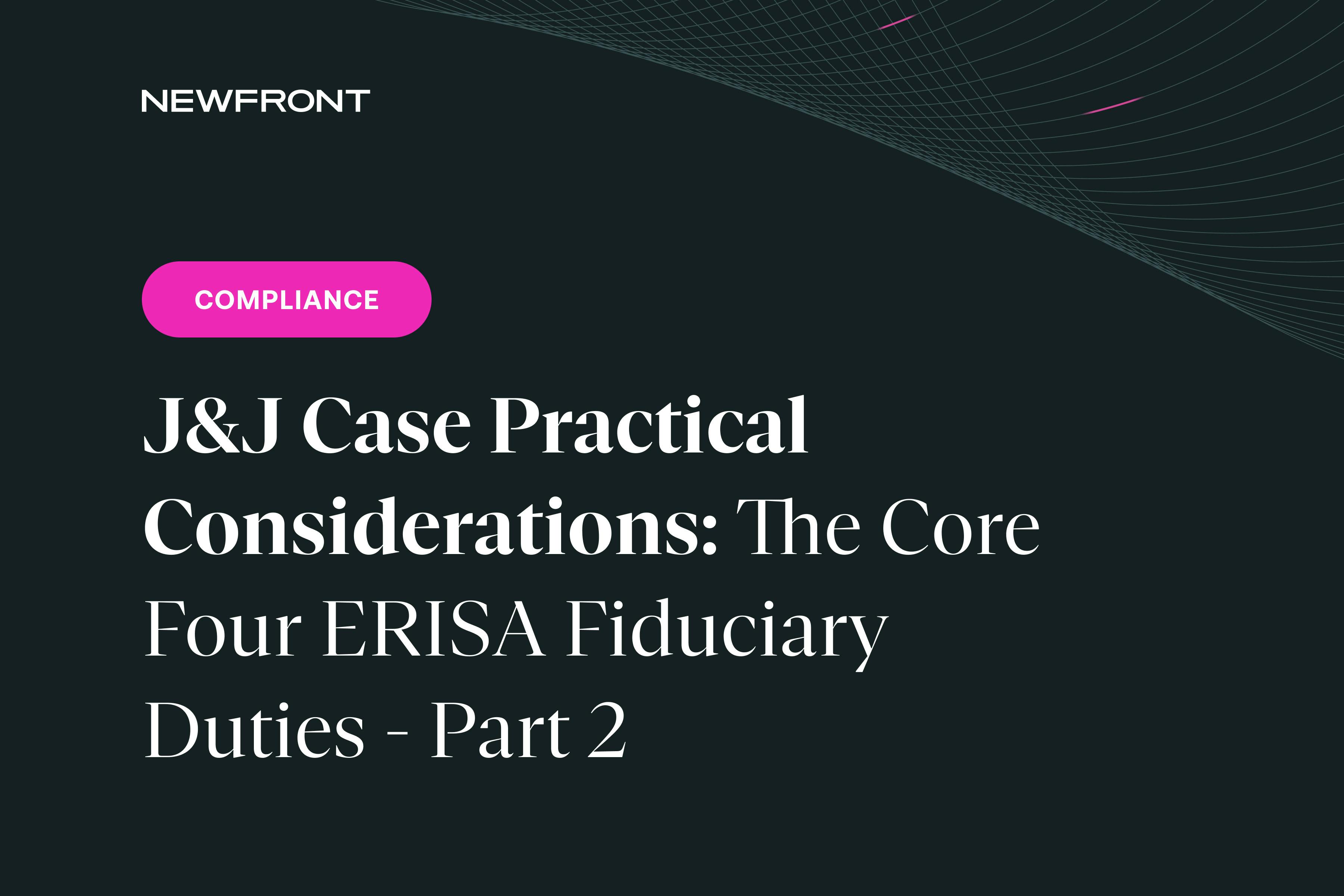Allowing Election Changes After Open Enrollment
By Brian Gilmore | Published November 30, 2018
Question: Employer’s open enrollment period recently closed for a 1/1 plan year start date. An employee says she missed the OE deadline by mistake and needs to change her health plan election. Can the employee change her health plan election before the plan year starts—even though OE has closed?
Compliance Team Response:
As described below, the employer can permit an exception to allow the post-OE election change if it is comfortable with establishing a precedent to allow other employees to change their elections after OE ends (but before the plan year begins).
No Section 125 Cafeteria Plan Issue
In most cases, the main concern with election deadlines is ensuring compliance with the Section 125 cafeteria plan regulations. Those rules require that the election be made prior to start of the plan year (1/1) and be irrevocable for the duration of the plan unless the employee experiences a permitted election change event.
Fortunately, this is not a Section 125 permitted election change event issue because the request does not relate to a mid-year election change. An election change would be mid-year only if it occurred after the plan year began (on or after 1/1). In this case, the employee would like to change an election post-OE but pre-plan year. This is not an issue under Section 125.
Section 125 Bottom Line: Allowing employees to make elections all the way up to the last second of 12/31 would therefore be permitted.
Administrative Reason for OE Ending In Advance of Plan Year
The main reason for employers structuring OE to end a set period in advance of the plan year beginning is for administrative purposes.
If employees were able to make elections all the way up to 12/31, it would be very difficult to implement their elections prior to the period of coverage.
ERISA Plan Precedent
If the employer were to permit the employee to change elections after the employer’s OE closes because of the employee’s changed decision or alleged mistake, it would create an ERISA plan precedent.
This would require the employer to provide the same opportunity to other employees in a similar scenario who request a post-OE but pre-plan year election change.
Best Practice Approaches
Employers have two best practice options:
Enforce the end of OE as a hard deadline after which no employees may change their elections; OR
If the employer decides to permit post-OE election changes, our recommendation is that the employer come up with some hard outer limit prior to the start of the plan year where it won’t accept any other post-OE election changes—regardless of the circumstances. An example of such a hard outer limit would be two weeks in advance of the start of the plan year. This will ensure that the precedent established is managed in a manner that permits all elections for 1/1 to be timely implemented.
What Happens Once the Plan Year Starts?
It is much more difficult to change an employee’s election once the plan year has begun for a number of reasons.
The main concerns are:
The Section 125 Cafeteria Plan Rules;
The Insurance Carrier (or Stop-Loss Provider) Limitations; and
The ERISA Plan Precedent.
For a full summary of those issues, see our previous FAST here: https://theabdteam.com/blog/making-mid-year-exceptions/
Doctrine of Mistake
In some rare circumstances, the IRS informal “doctrine of mistake” may apply to permit a late election change after the plan year has started. This requires “clear and convincing evidence” of a mistaken election, which is a very high bar to clear.
For a full summary of where the doctrine of mistake may apply, see our previous FASTs on this topic:
Regulations
Prop. Treas. Reg. §1.125-2(a)(1):
(a) Rules relating to making and revoking elections.
(1) Elections in general. A plan is not a cafeteria plan unless the plan provides in writing that employees are permitted to make elections among the permitted taxable benefits and qualified benefits offered through the plan for the plan year (and grace period, if applicable). All elections must be irrevocable by the date described in paragraph (a)(2) of this section except as provided in paragraph (a)(4) of this section. An election is not irrevocable if, after the earlier of the dates specified in paragraph (a)(2) of this section, employees have the right to revoke their elections of qualified benefits and instead receive the taxable benefits for such period, without regard to whether the employees actually revoke their elections.
(2) Timing of elections. In order for employees to exclude qualified benefits from employees’ gross income, benefit elections in a cafeteria plan must be made before the earlier of—
(i) The date when taxable benefits are currently available; or
(ii) The first day of the plan year (or other coverage period).
Prop. Treas. Reg. §1.125-1(c)(7):
(7) Operational failure.
(i) In general. If the cafeteria plan fails to operate according to its written plan or otherwise fails to operate in compliance with section 125 and the regulations, the plan is not a cafeteria plan and employees’ elections between taxable and nontaxable benefits result in gross income to the employees.
(ii) Failure to operate according to written cafeteria plan or section 125. Examples of failures resulting in section 125 not applying to a plan include the following—
(A) Paying or reimbursing expenses for qualified benefits incurred before the later of the adoption date or effective date of the cafeteria plan, before the beginning of a period of coverage or before the later of the date of adoption or effective date of a plan amendment adding a new benefit;
(B) Offering benefits other than permitted taxable benefits and qualified benefits;
(C) Operating to defer compensation (except as permitted in paragraph (o) of this section);
(D) Failing to comply with the uniform coverage rule in paragraph (d) in §1.125-5;
(E) Failing to comply with the use-or-lose rule in paragraph (c) in §1.125-5;
(F) Allowing employees to revoke elections or make new elections, except as provided in §1.125-4 and paragraph (a) in §1.125-2;
(G) Failing to comply with the substantiation requirements of § 1.125-6;
(H) Paying or reimbursing expenses in an FSA other than expenses expressly permitted in paragraph (h) in §1.125-5;
(I) Allocating experience gains other than as expressly permitted in paragraph (o) in §1.125-5;
(J) Failing to comply with the grace period rules in paragraph (e) of this section; or
(K) Failing to comply with the qualified HSA distribution rules in paragraph (n) in §1.125-5.
ERISA §402(a):
(1) Every employee benefit plan shall be established and maintained pursuant to a written instrument. Such instrument shall provide for one or more named fiduciaries who jointly or severally shall have authority to control and manage the operation and administration of the plan..

Brian Gilmore
Lead Benefits Counsel, VP, Newfront
Brian Gilmore is the Lead Benefits Counsel at Newfront. He assists clients on a wide variety of employee benefits compliance issues. The primary areas of his practice include ERISA, ACA, COBRA, HIPAA, Section 125 Cafeteria Plans, and 401(k) plans. Brian also presents regularly at trade events and in webinars on current hot topics in employee benefits law.
Connect on LinkedIn

